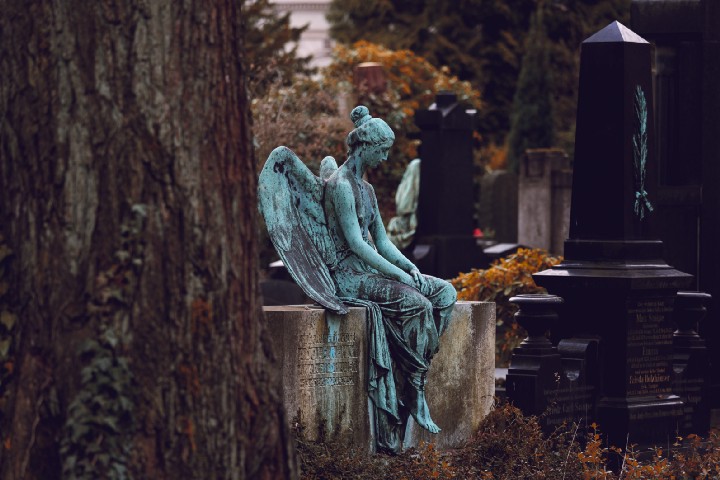A short story based on a life well-lived
This piece is loosely based on my husband’s life, as a child spent in the Sydney suburb of Bondi, and as a man trying to make up for past lacunae. I believe that our childhood experiences are what brought us together, at least in part. And our decisions to turn around our misfortunes played an important part in our successful marital connections.
This short piece needs to be read slowly.
At the hour of my birth a plane soared over white-capped peaks in a stark blue sky and disappeared. It was never seen again. At 21.00 hours, air traffic controllers in France reported the aircraft missing from radar screens over the European Alps. It was the War years and the wreckage was never found.
The pilot was my father.
Last words are things of note, and I regret not having had any from my dad. I tried to imagine what HIS might have been, but to no avail.
Shortly after the crash, at 5.05 AM, contractions of life beckoned to my mother and me, and I found myself blinking and bewildered underneath lights at the War Memorial Hospital in Waverley.
‘It’s a boy!’ the nurse said and showed me to my mother. Mum was in shock and she named me “Henry” after the doctor. I later on became Hal.
On reflection, I don’t quite know how I managed to ascend the wreckage of the life into which I was born. My mother had thought my birth would strengthen her marriage.
Anyway, Dad had died.
I shared a bedroom with my mother in a poky flat in Oxford Street, Bondi Junction. Where the Westfield Towers and Plaza now stand. It was a run-down liverish-colored building back then, with views of the Harbor from the back. A cheeky Italian flower seller, occupied the foyer of the building with noisy sales pitches to potential customers.
There was never enough money, but I rarely went hungry. Mum always made the best of things, especially at celebrations. Mum realised how wrong everything had gone, that Christmas when she, a proud woman, had to accept a hamper from the Salvos.
I swore that I would make something of myself.
After I married, I used my restless genes, passed on to me by my father, to full effect. Mrs Julia Featherstone would never have to work again. Unless she wanted to.
I worked as if something was driving me.
I was going to be the benchmark by which all husbands would be judged. We had three children straight off. Sometimes I was still working through the night when the kids woke up in the morning.
I’d reached the summit, top in my field of Aeronautical Engineering. I sat on the boards of international firms, and traveled around the world.
‘Working all day, Daddy?’ my daughter asked one day.
‘It’s for you and Mummy, darling,’ I told Rebecca, ‘and your brothers.’
I organized the best, the most expensive family holiday, first to Disneyland, then a cruise to the Bahamas, to relax in five star splendor.
For three weeks we did nothing but swim, sleep and have fun.
Becky and the boys loved it, having me, from morning to night, floating on water with them.
That was when Julia, out of the blue, crash-landed the whole thing. ‘I want to go back to work’, she announced firmly.
‘B.b.but you don’t need to,’ I gasped. ‘You have …. What about the children?’
I saw the signs of tension in her sea-green eyes and ruby red lips, her regal nose and calm voice pointing out flaws in male logic.
‘They’ll cope,’ she shot back, ‘a little bit of discomfort… makes you resilient.’
I had to slow down. Kick the ball for the kids when I picked them up from school. Take days off to spend with them.
My position on top of the world of aeronautics took a nose-dive. Then came the dreaded redundancy package.
Synchronicity and the power of words had begun tapping at the windscreen of my mind. Words to describe the time of my birth. Words to imagine my father’s accident. Words to write about life, love and death.
I wrote and I wrote. I wrote all day and sometimes well into the night, after having cooked the evening meal for the family. I experimented with stream of consciousness and magic realism. I tried to revive the past through memoir and experimental writing.
I’d never got to speak even first words to my father. But it was last words that cried out for attention now.
For years after the crash, Mum had had a recurring dream of a giant black log in a forest, blocking the path of a man on a white horse. The log always said the same thing: ‘Lift me.’
The rider could do nothing, and turned back the way he had come. Freudian wish fulfillment, I thought. Mum never remarried and the dream stopped coming.
She did volunteer work for the Salvation Army and had lots of friends, as well as her grandchildren to bring her comfort and joy.
She entered the twilight zone of her life with a Mona Lisa smile of resignation, or was it of something deeper and more mysterious?
On her deathbed, near to the end, Mum’s last words were: Lift me, metaphoric words she’d forgotten about, which were still there at the end.
Lift me.
I held her hand.
Those words today are on her tombstone, along with:
And She Was Lifted

